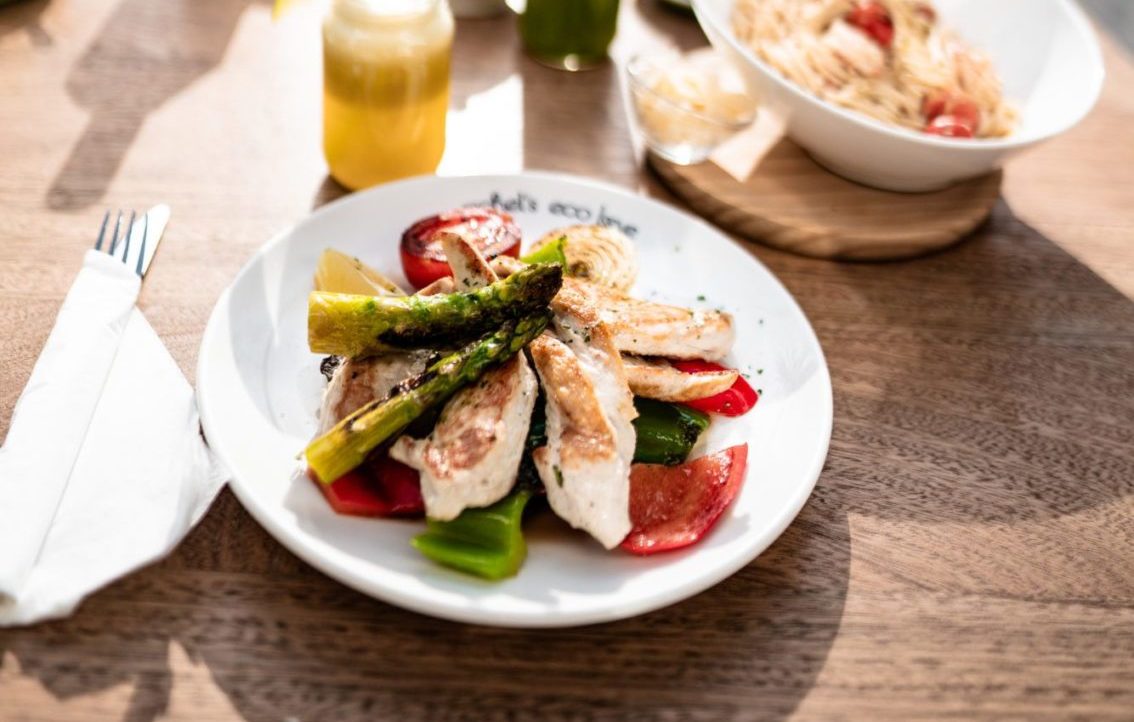Does eating together with others make you fat?
Many people would like to stay at the table, and strive to make healthy choices when at home, or to cut down on portions. However, there is a problem that almost all of us underestimate: eating with others would lead to weight gain.
But what exactly does that mean? Man is a convivial animal, and the practice of sharing meals is so ancient that the term “domestic hearth” originally indicates the very fire around which people gathered to eat meals, certainly already present from the first Homo in then, since man has been able to preserve and then produce fire.
So thinking of having to eat meals in solitude to lose weight is something that even goes against our evolution as human beings.
Yet, yet, think about it for a moment.
If you were to mention the last time you went overboard or bought a variety of unhealthy foods at the grocery store, you probably weren’t alone. You had an accomplice. And probably all of us, at home or among friends, have that person who pushes us to eat without worries, or who cooks dishes that are not exactly light for us. Whether it is the partner, the mother or whatever.

WHEN EATING TOGETHER WITH OTHERS MAKES US FAT
And in fact, a new study points the finger at the habit of sharing one’s meal, for example with colleagues on a lunch break. The study, published in the journal Nature , is one of the few that investigates the social context in the problem of obesity. But when does eating with others make you fat and when does it help you lose weight?
In reality it is difficult to give an answer that fits all cases. And on the other hand, there are many people who, on the contrary, binge alone, while in company they try to settle down.
In the study, however, it was found that out of three million subjects interviewed, sharing a lunch break with work colleagues was a risk factor for obesity. You eat a “quick thing” all together, but those in the group who have unhealthy habits will tend to influence others.
-
So when can eating with others make us gain weight?
We can all frame the social situation or situations in which we are most vulnerable. Our social situation could be about family, friends, our partner.
- If in a group we happen to order or divide high calorie dishes.
- Or if in a group we have a person who invites us to eat more.
- And again if we happen to imitate someone’s food choices, for example if that person is eating something that appeals to us, so we give in to sin with them.
In all these cases, eating together can make us gain weight, especially if this event occurs more than once a week, as in the case of breaks with colleagues, in which someone brings croissants to the office, or cookies that then invites you to try. Or in the family if our mother, our husband, our roommate, prepare savory pies and other dishes that are not exactly light. -
How to defend yourself?
You don’t have to give up the rest of humanity to lose weight, but try to take a series of precautions.
We can continue to eat in company, as long as our food choices are independent from others, both in the choice and in the preparation. Here, for example, I have already listed some scientific tricks, referring to specific situations.
Learning to cook yourself when you are on a diet is for example a way to keep track of how much you eat as well as going shopping with a list and something in your stomach, so as not to wander the shelves of the supermarket hungry.
And above all, do not be distracted by what others put on their plate, whether it is in the pizzeria or at the company canteen.
























+ There are no comments
Add yours